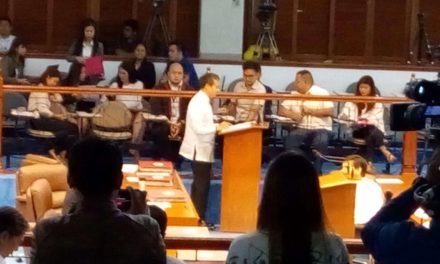The EU-ASEAN Network has questioned what it called a ‘mad rush’ to conclude a comprehensive free trade deals before its term expires on June 30 2016.
The network’s reaction comes in the wake of the conclusion of talks and the signing today in Bern, Switzerland of a comprehensive free trade agreement between the Philippines and the European Free Trade Association or EFTA, an economic grouping composed of Lichenstein, Norway, Iceland, and Switzerland,
The negotiations, which began in March 2015, for this comprehensive and ambitious agreement with EFTA took only a little over a year to be concluded.
“This is unprecedented. FTAs negotiations usually take anywhere between 2-4 years. It puzzles us why the Aquino administration chose to rush this agreement rather than pursue a more prudent process of having more consultations with various sectors and the public on an economic agreement that would have far reaching economic implications” said Joseph Purugganan, of Focus on the Global South, and coordinator of the EU-ASEAN Network.
When the talks were launched in 2015, the network issued a position paper outlining its serious concerns with the trade deal with EFTA
According to the statement by the EU-ASEAN Network:
“We are concerned that the Philippine government will commit the country once again to deeper liberalization particularly in the areas of export interest to EFTA countries like fish and other marine products, pharmaceutical products and services without presenting to the public a clear cost-benefit analysis of future concessions particularly on vulnerable sectors like small fishers, and workers.
It further noted that the “ Philippine-EFTA trade talks will open the door for more and much deeper economic concessions under an ambitious new generation FTA with EFTA with very little consideration of the issues raised against such highly ambitious agreements and their economic, social and environmental impacts.”
The Network raised as redlines two sensitive issues concerning Intellectual property rights and the investment chapter.
“We are concerned over the possible implications of a restrictive, TRIPS+ intellectual property rights regime (IPR) under the deal with EFTA given the aggressive interest of big pharmaceutical companies for greater market access in the Philppines and increased IPR protection” the Network noted.
“Furthermore, we are deeply concerned that the investment chapter in the FTA with the inclusion of the highly controversial investor-state dispute settlement (ISDS) mechanism will further expose the country to the threats of costly investment litigation over public policies and regulations. The case with the Swiss inspection services firm SGS is illustrative of the dangers of ISDS. In 2008, after a lengthy litigation process, the Philippine government settled the dispute with SGS agreeing to pay the Swiss multi-national company the amount of US$147.6 million.
ISDS is the provision that has become a trademark of so called new generation FTAs, that gives corporations the power to sue governments and demand compensation, to the tune of millions sometimes hundreds of millions of dollars over public policies and regulations that undermine their profit margins.
According to the Network “an ISDS provision in the FTA with EFTA will be a threat to public policy and could lead to more costly litigation in the future. We are also concerned that the EU will soon follow after EFTA to claim at least the same concessions as offered to EFTA and a lot more.”
While lesser known compared to the EU, EFTA has in fact been more active in pursuing economic agreements compared to the EU having concluded around 27 FTAs with 37 countries.
Over the last few years the scope of EFTA’s agreements have become so much broader as well. EFTA’s FTA with Hong Kong concluded in 2011 covers a wide range of areas including trade in goods and services, as well as investment, and other trade-related issues such as protection of intellectual property.
The deal with our ASEAN neighbor Singapore, which entered into force more than a decade ago, already covered trade in services, investment and related areas, such as public procurement, competition and protection of intellectual property rights.
“While we still have yet to get a copy of the actual text of the agreement signed today in Bern, we anticipate that this is a broad, comprehensive and ambitious agreement, that would have some if not all of the elements of a new generation FTAs” according to Purugganan.
“With the lame-duck Aquino government sneaking in this ambitious agreement pass public scrutiny, it will now be a big challenge for the incoming administration and Senate to make sure that our national interest will not be sacrificed under this agreement” concluded Purugganan.#
Joseph Purugganan’
+639228299450










